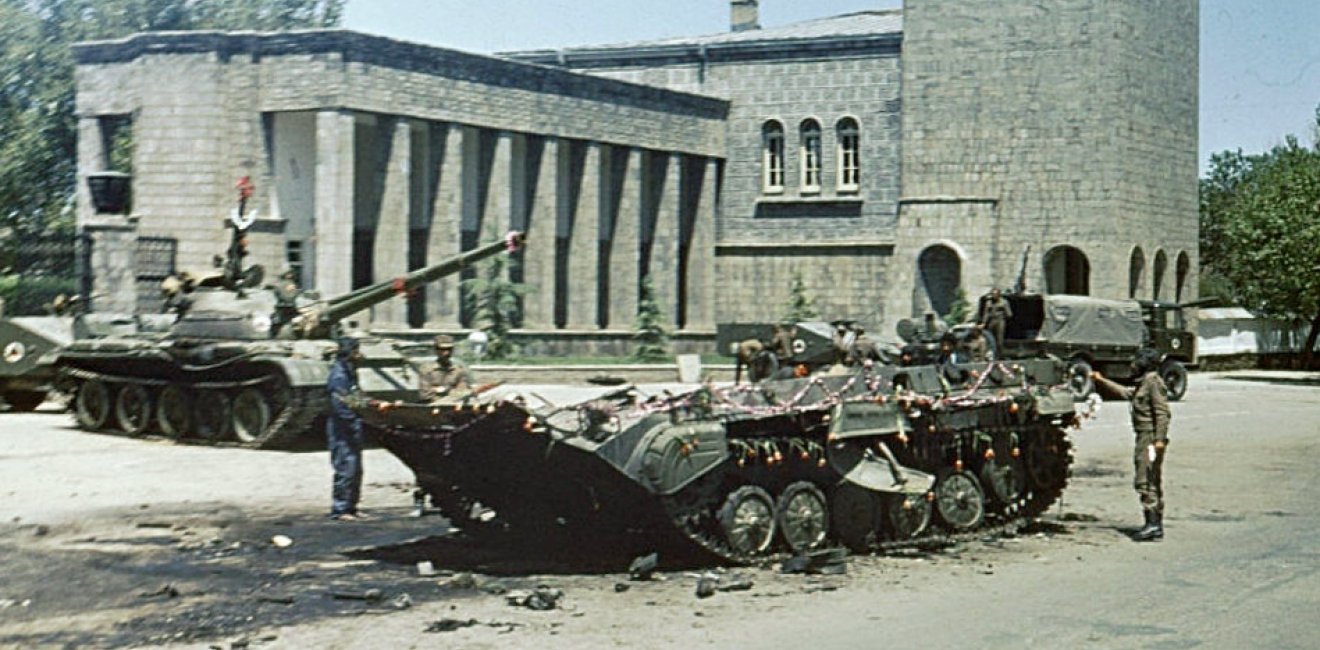
A blog of the History and Public Policy Program

Letter from Soviet Ambassador makes case for Soviet support of Afghanistan following 1978 coup
On April 27, 1978, the People's Democratic Party of Afghanistan (PDPA) assassinated Mohammed Daoud Khan, the President of Afghanistan, and overthrew his government in a pro-communist coup.
In a letter written one month after the coup, Soviet ambassador to Afghanistan Alexander Puzanov described the dysfunctional political landscape that precipitated this Saur Revolution.
According to Puzanov, rising tensions between President Daoud’s “bourgeois” administration and pro-communist rebels created an increasingly tense atmosphere in Afghanistan. “Daoud expressed the interests and class position of bourgeois landowners and rightist nationalist forces,” facets of his leadership which, in the Soviet ambassador’s interpretation, harmed the working class and stood in the way of sweeping economic reforms.
Daoud’s popularity among wealthy citizens and growing amity with Islamic regimes (as well as his perceived support from “American imperialism”) produced an “abrupt sharpening of the contradictions between the Daoud regime and its class supporters and the fundamental interests of the working masses,” a mounting fissure that hastened Daoud’s downfall.
In the months following the PDPA’s successful seizure of power, the new regime itself became ensnared in a power struggle. Nur Mohammad Taraki – a member of the Khalq faction – became head of state a few days after the coup, but subsequently became entangled in an aggressive battle with Babrak Karmal and his fellow Parchamis. Taraki and the Khalqists, however, ultimately triumphed. In his letter, Puzanov commented on Taraki’s leadership, stating that it “[provided] for the interests of the working population.”
Puzanov also emphasized the necessity of Soviet support for Afghanistan in order to bolster its young communist government. As the PDPA formalized its consolidation of power and continued to push toward establishing a socialist regime, it faced protests from Daoud loyalists. Puzanov, however, ended his letter on a cautiously optimistic note:
The most important factor for the further strengthening of the new power will be the achievement of unity in the leadership of the PDPA and the government. But 'the tension so far has not totally been cleared away.' The embassy jointly with a group of Party advisors is undertaking measures to overcome the disagreements in the Afghan leadership.
Author
Explore More in Sources and Methods
Browse Sources and Methods
Energy and the Fall of Détente

Kissinger, Dobrynin, and the End of the Vietnam War

